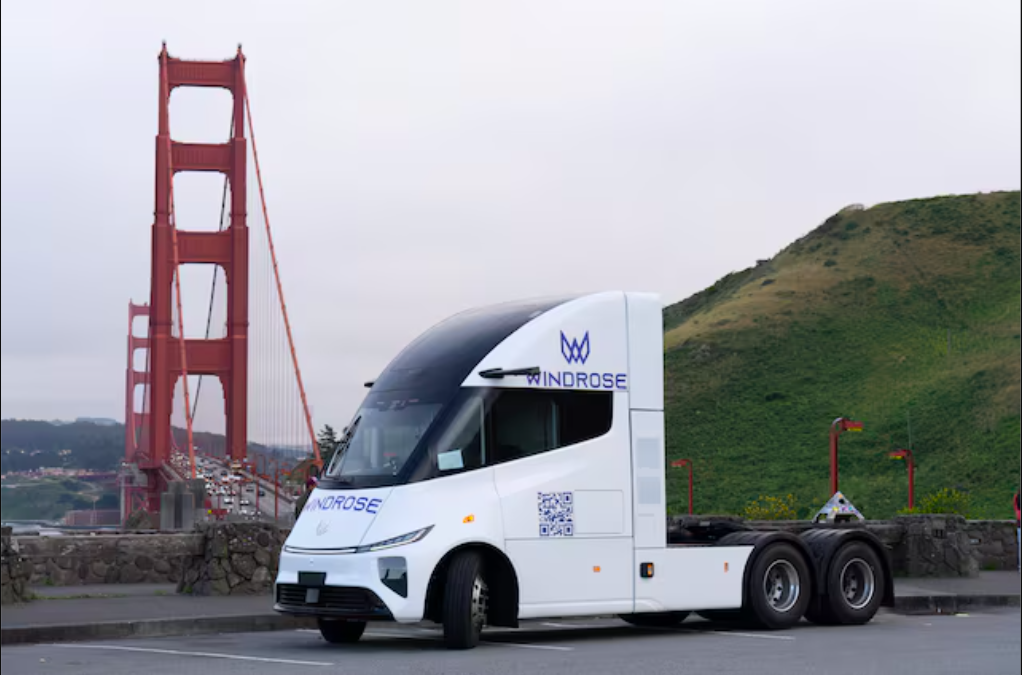Chinese startup Windrose has announced plans to set up an assembly plant for its electric semi-trucks in the United States. The company aims to begin deliveries from this facility, slated to be located in Georgia, by 2025. This development represents a significant challenge to Tesla on its home turf and marks a potential return of Chinese EV companies to the world’s second-largest automotive market.
Windrose’s founder and CEO, Han Wen, revealed in an interview that the U.S. plant will primarily assemble chassis and other vehicle parts manufactured in China to serve American customers. The decision comes at a time of complex political and economic dynamics between the U.S. and China in the EV sector.
While Republican presidential candidate Donald Trump has expressed support for such investments, the Biden administration has maintained a stance of keeping Chinese electric vehicles out of the United States through heavy tariffs. The current administration has also excluded components linked to China from its electric auto incentive schemes, effectively creating barriers for Chinese EV industry investment.
Despite these challenges, Windrose sees an opportunity in the U.S. market. Han stated, “The U.S. market is friendly towards Chinese heavy electric trucks based on the fact that the tariffs on imported trucks are much lower than those on cars.” He added that many of their clients, including prominent names like Nike, are U.S. firms that can be served in their home market.
Windrose’s ambitious plans extend beyond the U.S. The company is also planning an assembly plant in Belgium next year, with intentions to gradually move more sophisticated manufacturing work to its overseas plants. This expansion into Europe comes as the European Union has imposed additional tariffs of up to 38% on EVs imported from China, citing unfair state subsidies.
The Chinese startup’s electric semi-truck is set to compete directly with Tesla’s Semi, both priced at approximately USD 250,000. Windrose’s offering boasts a battery pack of over 700 kilowatt-hours, capable of running more than 670 kilometres (418 miles) on a single charge when fully loaded at 49 tons. This move comes at a time when Tesla has faced challenges in mass-producing and delivering its Semi trucks, with only 36 out of 100 promised vehicles delivered to PepsiCo as of April.
Windrose, founded just two years ago, is set to deliver its first batch of electric trucks in China this August. The company aims to achieve a global production capacity exceeding 10,000 units annually by the end of 2027. While Windrose’s team of 140 people handles development and design, manufacturing is outsourced to Chinese automakers Anhui Jianghuai Automobile Group and Higer Bus.
The company’s expansion plans are supported by its battery suppliers, CALB and EVE Energy, which are also establishing battery plants in Europe. This strategic move could potentially create a more integrated supply chain for Windrose’s European operations.



